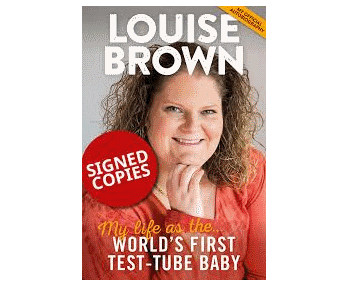 Happy Birthday, Louise Brown!
Happy Birthday, Louise Brown!
July 25 marks the 39th anniversary of the premier success of one of the modern era’s greatest medical advances, in vitro fertilization. It’s also the birthday of Louise J. Brown, the world’s first IVF baby. Since her birth, it’s estimated that nearly six million IVF babies worldwide have been born, with at least a million from the United States.
IVF is an evolving technology
Since 1978, the pace of IVF innovation has been impressive. Some of the most notable changes include:
- Egg retrieval is performed vaginally instead of by laparoscopy
- Sperm can be injected directly into eggs via intracytoplasmic sperm injection (ICSI)
- Embryos can be tested for genetic diseases and chromosomal abnormalities
- Gametes and embryos can be frozen, potentially indefinitely
- Time-lapse imaging and computer algorithms can monitor embryo growth and development
- Elective single embryo transfer versus transferring multiple embryos is gaining in popularity as a standard practice
- IVF is now available to more than heterosexual married couples and is commonly used by singles and same sex hopeful parents
IVF kids are alright
The Browns knew IVF was experimental. But they had faith in their doctors and the new technology and also used IVF to conceive their second child, Natalie.
Nearly 40 years of research has demonstrated that children conceived via IVF do not have any more significant health problems or cognitive issues than their peers conceived naturally. This should reassuring news to parents.
IVF success rates have increased steadily
Before Louise’s birth, her doctors experienced numerous failures. In fact, in the first decade, after she was born, failure was more common than success. According to the Society for Assisted Reproductive Technology (SART), the chance of taking home a baby with each IVF cycle was 10 percent 30 years ago. Today, it is above 30 percent nationally among all age groups. With our state-of-the-art labs and experienced physicians, HRC is achieving success rates well beyond the national average.
IVF’s future is bright
Recently, Louise Brown and Elizabeth Carr, the first U.S. IVF baby, met for the first time at a reproductive medical conference in Chicago. They reminisced about their overly scrutinized childhoods, which became their new “normal.” Both are mothers and fierce advocates for infertility treatment and research. Warmest wishes to Louise on her birthday, an occasion that is always a great opportunity to look at how far we’ve come as a field and how far we have to go until every person who wants to become a parent can fulfill their dreams.
References
https://www.arcfertility.com/from-scandal-to-mainstream-the-history-of-ivf/
http://theconversation.com/ivf-has-little-effect-on-health-of-the-child-75146
http://www.nbcnews.com/health/health-news/million-babies-have-been-born-u-s-fertility-help-n752506
